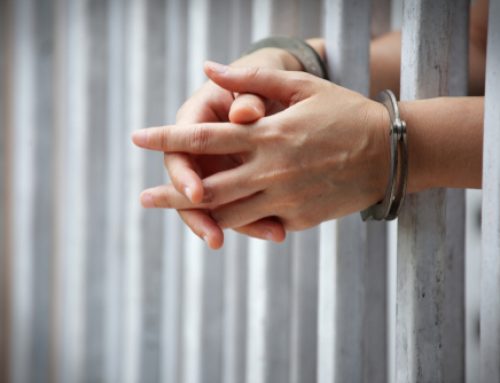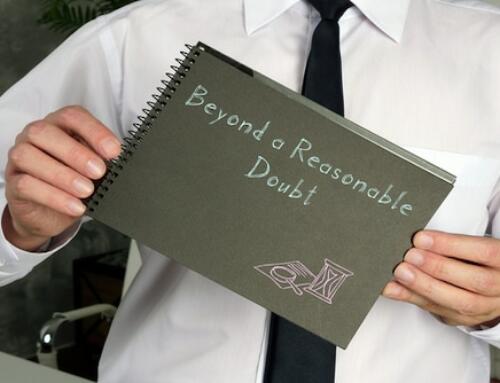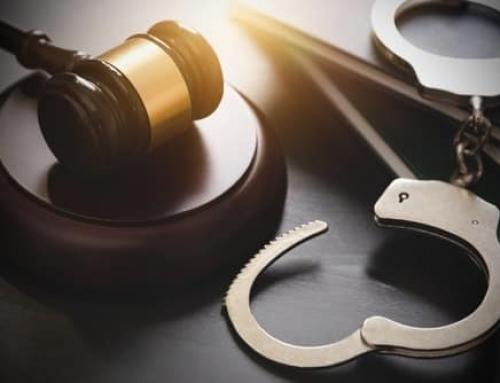You’ve been charged with a crime in Pennsylvania. But, you are innocent. You are wrongly accused, and your future is on the line for something you did not do. So, what options do you have for proving that you are not guilty of the crime alleged?
Unfortunately, this scenario is all too common. While a significant number of police officers are very good at what they do, there is no question that many people get arrested despite not having committed a crime. This does not necessarily mean that your arrest was wrongful—the police have discretion, and sometimes they need to make decisions based on their best judgment—but it does mean that you must now defend against your charge by all means available.
You Don’t Need to Prove Your Innocence to Avoid a Conviction
Before we talk about proving your innocence—which may or may not be possible depending on the circumstances of your case—it is worth pointing out that you don’t necessarily need to prove your innocence to avoid being convicted at trial. Why? Because in criminal cases, the prosecution has the burden of proof.
This is based on the fundamental principle that all criminal defendants are innocent until proven guilty. If the prosecutor’s office cannot prove that you are guilty, then it does not matter whether you are guilty or not. As a result, poking even a single hole in the prosecution’s case is just as effective as comprehensively proving your innocence in court. Depending on the circumstances of your case, there might not be enough evidence to prove your innocence affirmatively. However, there could still be enough evidence to show that the prosecution cannot prove your guilt beyond a reasonable doubt.
3 Ways to Prove that You are Innocent After Being Charged with a Crime
But, let’s say that proving your innocence is your best option. So, how do you prove that you are innocent in Pennsylvania state court? Here are three potential ways to prove that you have not committed the crime with which you have been charged:
1. Presenting an Alibi
One of the most effective ways to prove your innocence in a Pennsylvania criminal case is by presenting an alibi. If you were somewhere else when the alleged crime took place, then your innocence should be clear to the prosecutors, the judge, and the jury members.
How do you prove an alibi? As with all other aspects of your defense, the available options will depend on the specific circumstances of your case. Some examples of evidence that can be used to prove an alibi include:
- Eye Witness Testimony – If reliable witnesses can testify as to your whereabouts when the alleged crime was committed, their testimony could serve as strong evidence of your innocence.
- Traffic or Surveillance Camera Footage – Video footage of your whereabouts at the time of the alleged crime can be even stronger evidence of innocence than eye witness testimony.
- Phone Records – If your phone records show that you were somewhere else at the time of the alleged crime, presenting these records in court could be enough to establish your innocence in the jurors’ minds.
- Employment, Bank Account, or Other Records – Were you at work when the alleged crime occurred? Do your bank account records (or other records) show that you were doing something other than committing the alleged crime during the time period in question? If so, your criminal lawyer may be able to use these records to prove your innocence.
- Photos, Videos, or Social Media Posts – If you, your family members, or your friends have photos or videos that place you somewhere other than the scene of the alleged crime; your lawyer may be able to use these to prove your innocence as well.
2. Presenting Exculpatory Evidence
In addition to presenting evidence of an alibi, you may also be able to prove your innocence by presenting other forms of exculpatory evidence.
For example, if the prosecution’s case hinges on DNA evidence, it may be possible to obtain a DNA sample to prove that you are not the culprit. Or, if you are facing a DUI charge, your lawyer may be able to use the breathalyzer device’s maintenance records to show that the device wasn’t properly calibrated at the time of your arrest. These are just two of numerous possibilities, and you will need to work closely with your defense lawyer to figure out what evidence you can use to disprove the allegations against you.
3. Showing that You Have Been Falsely Accused
A third option for proving your innocence in a Pennsylvania criminal case is to show that you were falsely accused. False allegations are widespread in domestic violence cases, but they can lead to various other types of charges. If you have been falsely accused of a crime, you will need to talk to a defense lawyer about how best to approach your situation. If you have an alibi or other exculpatory evidence is available, your lawyer may be able to use this to prove that you were arrested based upon false allegations—even if you do not have direct evidence to prove that your accuser was lying.
Are You Sure You are Innocent?
When talking about innocence defenses, it is important not to overlook the critical step of determining whether you are innocent. The Pennsylvania Statutes establish many different criminal offenses. Even if you don’t think you committed a crime, you will need to have a lawyer thoroughly examine the facts of your case to determine if you are at risk for conviction.
Discuss Your Case with Philadelphia Criminal Defense Lawyer Brian Fishman in Confidence
Do you believe that you are innocent of the charges against you? To discuss your case in confidence, schedule an appointment with Philadelphia criminal defense lawyer Brian Fishman now. Call 267-758-2228 or contact us online to speak with Mr. Fishman about your case as soon as possible.






